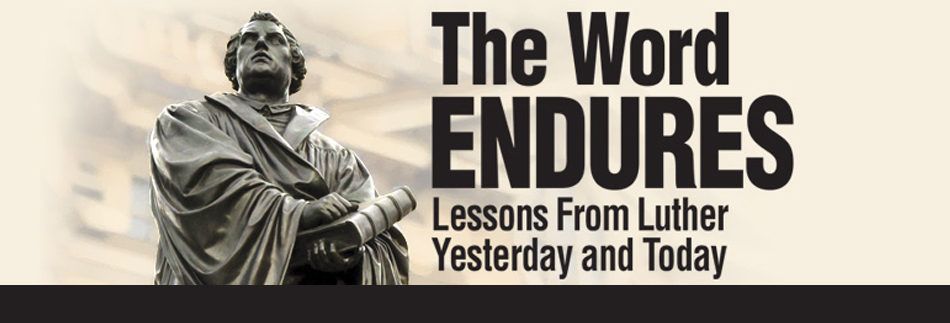Motivational Factors
January 7, 2017 | PASTOR ZACHARY PUDLO
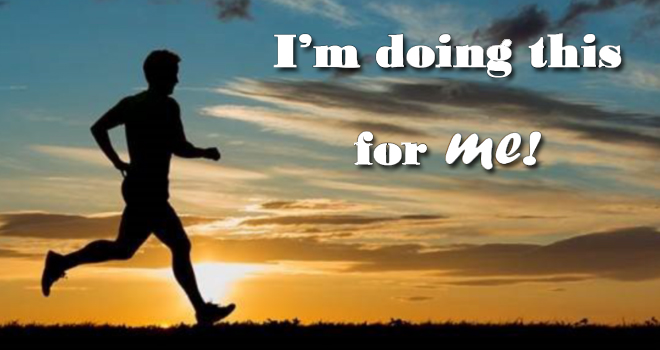
Resolutions
With a new year underway, many people have resolutions on their minds. I would be lying if I said there aren’t goals and resolutions I too have in mind this year. Common resolutions for many people include losing weight, exercising more while eating less, reading more, finishing projects, spending more time doing things you love, etc… These all seem like good resolutions for an individual to improve him/herself. They are all about progress, getting better, moving forward. With the topic of resolutions being on my mind it got me thinking about what the different motivations are for establishing and accomplishing resolutions.
Reasons Behind Our Motivation
New Year’s resolutions often are about self-improvement. But what is it that drives a person to self-improvement. In his work entitled The Nature of True Virtue, Jonathan Edwards wrote about the things that motivate people:
All sin has its source from selfishness, or from self-love not subordinate to a regard to being in general…And no wonder that men, by long acting from the selfish principle, and by being habituated to treat themselves as if they were all, increase in pride, and come to look on themselves as all, and so to lose entirely the sense of ill desert in their making all other interests give place to their own.
Edwards is saying that the ego, love of self, is what drives people. In The Nature of True Virtue he also makes the case that the two main motivating factors behind every sin are fear and pride. Is it possible this true of some of our new year’s resolutions?
Youth Reach Out to Community
Crown of Life Teens take the opportunity to volunteer at a neighborhood food shelf on their day off from school.
Mr. Fenske took five teens to Neighbors Inc. in early December to increase community outreach opportunities in Crown of Life’s youth program. In three hours the kids sorted, dated and shelved an overwhelming amount of donations that came in during the November food drive.
Not knowing what they were getting into they were pleasantly surprised and all said that it was fun and they would do it again. It’s always fun to volunteer with friends!
Thank you for your outstanding work! Can’t wait to see what you do next.
The Dying Horizontal Church
December 2, 2016 | PASTOR ZACHARY PUDLO
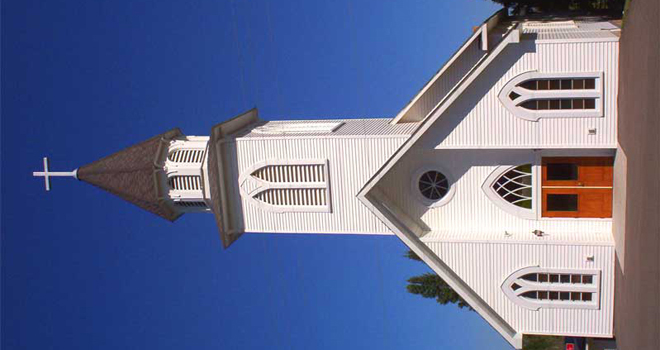
The Current Religious Situation
From what we see in pop culture, social media, and the news it might lead us to think that the world as we know it is becoming more and more secular. However, the statistics show otherwise. I am well aware that starting out an article stating a number of current statistics is not the best way to capture the reader’s attention (the pictures and graphs will hopefully keep you interested). And if you can make it through the stats you might find some current trends in the world’s religious state of affairs surprising.
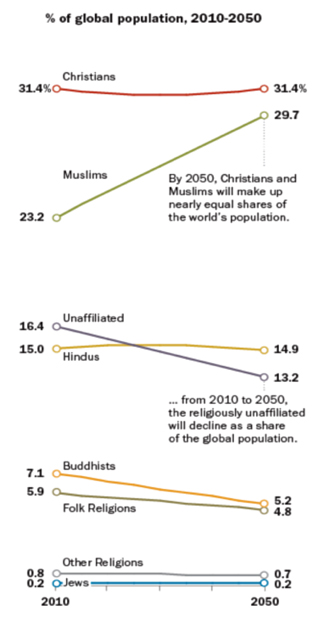
In April of 2015, Pew Research Center published an article concerning the current and future World Religion populations. Summed up: many religions will grow overall, but not all of them will grow at a rate that keeps up with the growing population of the world. Perhaps the most surprising statistic was the projection that the percentage of the world’s atheists, agnostics, and the religiously unaffiliated will slowly but steadily decline from 16.4 percent of the world’s population today to 13.2 percent forty years from now. What does that mean? The world is projected to become more religious over the next 35 years.
While Christianity will remain static in its makeup of the world’s population, there is some flux within its denominations. The membership of different denominations over the past fifty years reveals an interesting trend. If we look back 50 years we can see a clear and unequivocal trendline: liberal denominations have declined sharply while conservative denominations have increased or remained the same.
A Horizontal Problem
What is the reason for the decline in the liberal denominations? A closer look at the theology of the more liberal Christian denominations is telling. Using the United Church of Christ (UCC) as a case study provides some telling information. The UCC is one of the fastest declining Christian denominations. In 1965, the UCC had 2,070,413 members. In 2016, there were 914,871 members, a decline of nearly 56 percent in just over 50 years.
Being on the liberal end of the spectrum they fall right in line with the trend of declining liberal churches. So what is it the UCC teaches? One of their statements of faith is,
“The unity that we seek requires neither an uncritical acceptance of any point of view nor a rigid formulation of doctrine.”
HOLIDAY WORSHIP SCHEDULE

Wednesdays: Nov. 30, Dec. 7, Dec. 14
4:00 and 6:30 pm WSP | Light Supper served between services
(No Wednesday Evening Services in Eagan)
No Monday Services Nov. 28 – Dec. 26
Saturday, December 17
5:00 pm Eagan (Communion)
5:00 pm Eagan (Communion)
Sunday, December 18
Children’s Christmas Services | 8:00 and 10:30 am WSP (No communion)
9:00 am Eagan – regular service (Communion)
Children’s Christmas Services | 8:00 and 10:30 am WSP (No communion)
9:00 am Eagan – regular service (Communion)
Christmas Eve, Saturday, December 24
Candlelight Service – 7:00 pm WSP
Candlelight Service – 8:00 pm Eagan
Christmas Day, Sunday, December 25
9:00 am Eagan
10:00 am WSP
New Year’s Eve, Saturday, December 31
6:30 pm WSP (Communion)
New Year’s Day, Sunday, January 1
9:00 am Eagan (Communion)
10:00 am WSP (Communion)
10:00 am WSP (Communion)
Sharing Faith In The St. Croix Dorms
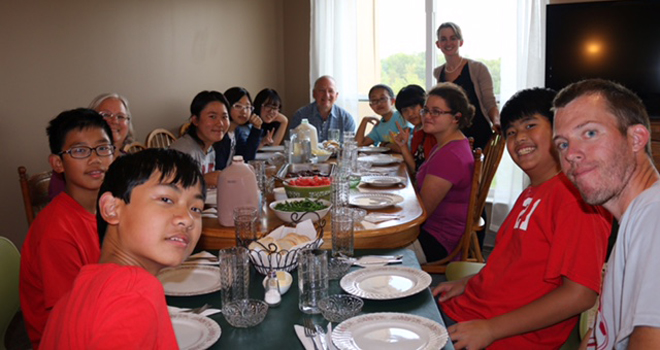
St. Croix Lutheran is unique to most schools in that a fourth of their enrollment (about 100 students) are international students and come from all corners of the world. St. Croix has a new dorm to accommodate housing for all these kids and those that come from the United States. Crown of Life members Chris Maki and Bev Abel are two of six dorm supervisors. Chris’s experience comes from years of teaching and coaching while Bev’s comes from years of parenting.
Chris Maki began his teaching ministry at St. Andrew’s Lutheran School in St. Paul Park where he taught almost every grade and learned about the challenges and rewards of teaching in a Lutheran school. After several years, Chris started coaching soccer at St. Croix and was offered a position to teach geometry and be a dorm supervisor. Along with this position came new challenges and rewards, especially as he shares God’s Word with students from all over the world.
Both Perry and Bev graduated from St. Croix Lutheran, as well as their children, so the St. Croix ministry is very close to their hearts. After retiring from Travelers, Bev joined the dorm supervising staff in 2015 as the girl’s supervisor. She enjoyed being a mom so much, she thought she could take on a dorm full of teenagers. Perry, although not a dorm supervisor, enjoys engaging with the students and can often be found at their games, concerts or photographing events. He continues to work in real estate and volunteer at Crown of Life. Read more…
In God We Trust
October 28, 2016 | PASTOR ZACHARY PUDLO
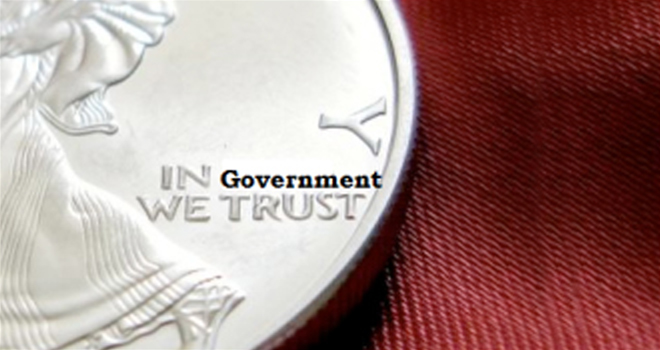
Two Kingdoms
Archbishop William Temple is attributed with saying, “Your religion is what you do with your solitude.” A.K.A. What do you do when you have free time? Where does your mind drift? What do you think or daydream about? If it’s the same thing day in and day out, it’s possible that thing has become your religion. Like many of you, in my free time I occasionally will go to social media to see what is trending. I’m guessing I’m not the only one who sees countless political posts and rants, some with threads leading down a dark, divisive path. Right wing, left wing, libertarian, it seems like everyone has a political view they are thinking about, dreaming about and spending a lot of their free time promoting. Is it possible that politics has become our culture’s religion? How does a person’s Christian faith affect the way they relate to politics?
In one of his great works, City of God, Augustine elaborates on the Biblical teaching that Christians are dual citizens. Our primary citizenship is in the kingdom of God, but as long as we are on earth, we also are citizens of this world. Our first allegiance belongs to the City of God, and our secondary allegiance belongs to the City of Man. But what happens if those allegiances are reversed? What happens when my dedication to earthly politics takes precedence over my allegiance to God’s kingdom? How will that affect my allegiance to God and the mission he has given to his kingdom to “Go and make disciples of all nations…”?
Why Lives “Matter”
JULY 31, 2016 | PASTOR ZACHARY PUDLO
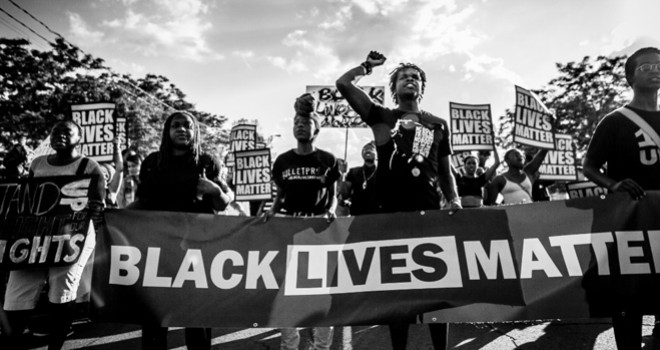
Over the past month it has become clear that our nation, and our world, is still a bit confused about why lives matter. Outbreaks of violence are becoming more and more frequent. Violence motivated by a disdain for people who are “different”. How do Christians address issues of violence, racism, and division? God gives us the the motivation and the resource. And it all starts with who you are.
“Black lives matter”. “All lives matter”. “Blue lives matter”. The slogans are out. Do they help heal our divided world, or do they cause more division? “Black”, “all”, “blue”… those aren’t the words we really should be dwelling on. “Matter”… there’s a word worth looking at. “Matter” has its origin all the way back to the Latin word “materia”. It means “the source from which something is made.” So whenever someone claims that a life matters they are pointing back to their origin or their source. They are pointing to the materials that make them. They are saying that the place from which a human being comes is what makes them important.
Dr. Martin Luther King Jr. would agree with that. On July 4, 1965, he said this in his famous speech, The American Dream
You see, the founding fathers were really influenced by the Bible. The whole concept of the imago dei, as it is expressed in Latin, the “image of God,” is the idea that all men have something within them that God injected. Not that they have substantial unity with God, but that every man has a capacity to have fellowship with God. And this gives him a uniqueness, it gives him worth, it gives him dignity. And we must never forget this as a nation: there are no gradations in the image of God. Every man from a treble white to a bass black is significant on God’s keyboard, precisely because every man is made in the image of God. One day we will learn that. (Yes) We will know one day that God made us to live together as brothers and to respect the dignity and worth of every man.
Martin Luther King Jr. was alluding to the book of Genesis when he said that all mankind is made in the image of God. “So God created mankind in his own image, in the image of God he created them; male and female he created them.” (Genesis 1:27) Seems simple, doesn’t it? Every human being has their origin in God. God loves and creates every human being, so every human being should have respect for every other human being. If God loves all, then why don’t we? Why is this so hard to keep in mind? What’s gone wrong?

